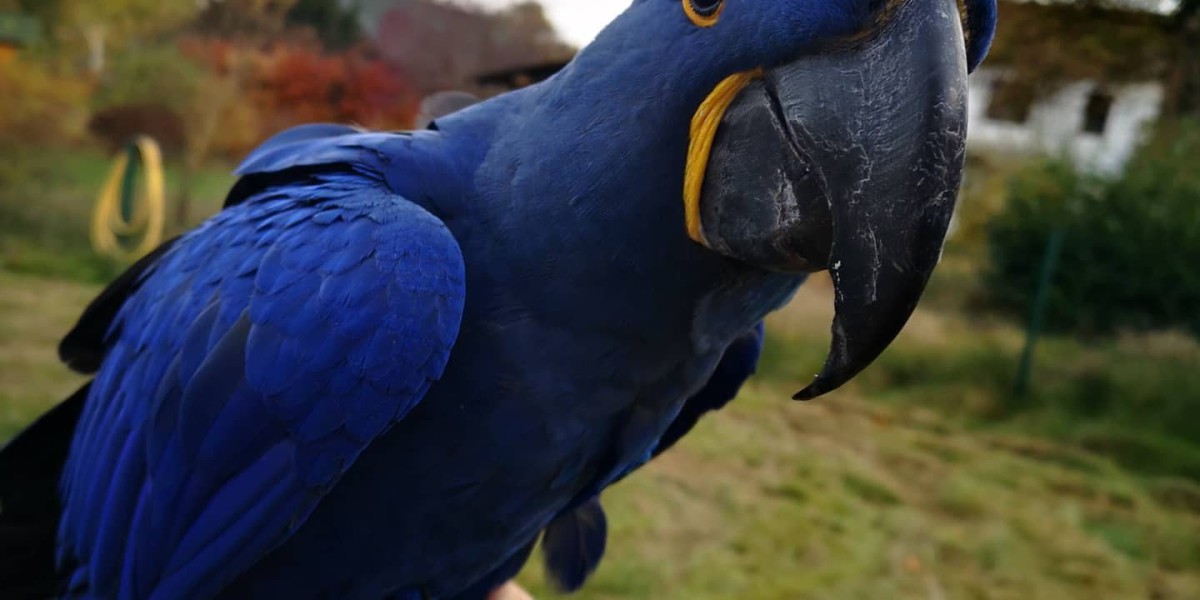Macaws, with their vibrant plumage and charismatic personalities, are among the most sought-after avian companions. However, purchasing a macaw is a significant commitment that requires careful consideration. This guide will walk you through the essential steps to ensure that you make an informed decision and provide the best possible home for your new feathered friend.

1. Understanding Macaws
Macaws are large, intelligent, and highly social birds native to Central and South America. They are known for their striking colors, which can range from bright red and blue to green and yellow. Macaws can live for 50 to 80 years, making them a long-term commitment. They are also highly vocal and require a lot of attention and interaction to thrive.
2. Research Different Species
There are several species of macaws, each with its own unique characteristics. Some popular species include:
- Scarlet Macaw: Known for its vibrant red, yellow, and blue plumage, the Scarlet Macaw is one of the most recognizable macaw species. They are highly intelligent and require a lot of mental stimulation.
- Blue and Gold Macaw: This species is known for its striking blue and yellow feathers. They are generally more laid-back and make excellent family pets.
- Hyacinth Macaw: The largest of the macaw species, the Hyacinth Macaw is known for its deep blue feathers and gentle nature. They require a spacious environment and a diet rich in nuts and fruits.
- Green-winged Macaw: Similar in size to the Hyacinth Macaw, the Green-winged Macaw is known for its deep red plumage with green wings. They are highly social and need a lot of interaction.
3. Consider Your Lifestyle
Before buying a macaw, it's crucial to consider your lifestyle and whether you can provide the necessary care and attention. Macaws require:
- Time and Attention: Macaws are highly social and need several hours of interaction and playtime each day.
- Space: They need a large cage and plenty of room to fly and exercise.
- Diet: Macaws require a varied diet that includes fresh fruits, vegetables, nuts, and high-quality pellets.
- Veterinary Care: Regular check-ups with an avian veterinarian are essential to ensure your macaw's health.
4. Find a Reputable Breeder or Rescue
When buying a macaw, it's important to find a reputable breeder or rescue organization. Here are some tips:
- Research: Look for breeders or rescues with positive reviews and a good reputation. Visit their facilities if possible to ensure they provide a clean and caring environment.
- Ask Questions: Inquire about the macaw's history, including its age, health, and personality. Ask about the breeder's or rescue's policies on health guarantees and returns.
- Meet the Macaw: Spend time with the macaw before making a purchase. Observe its behavior and ensure it is comfortable with you.
5. Prepare Your Home
Before bringing your macaw home, make sure your living space is macaw-friendly:
- Cage: Invest in a large, sturdy cage that is appropriate for the size of your macaw. The cage should be spacious enough for the bird to spread its wings and move around freely.
- Perches and Toys: Provide a variety of perches and toys to keep your macaw mentally stimulated and physically active.
- Safety: Macaws are curious and can be destructive. Remove any potential hazards from the room where the macaw will spend most of its time, such as toxic plants, small objects, and open water sources.
6. Understand the Financial Commitment
Owning a macaw can be expensive. Consider the following costs:
- Initial Purchase: Macaws can range in price from several hundred to several thousand buymacaw dollars, depending on the species and breeder.
- Cage and Supplies: A high-quality cage, perches, toys, and other supplies can add up.
- Diet: High-quality pellets, fresh fruits, and vegetables can be costly.
- Veterinary Care: Regular check-ups and emergency care can be expensive.
7. Build a Bond
Building a strong bond with your macaw is crucial for a happy and healthy relationship. Here are some tips:
- Patience: Macaws can be sensitive and may take time to trust you. Be patient and gentle in your interactions.
- Positive Reinforcement: Use treats and praise to reward good behavior and encourage positive interactions.
- Consistency: Establish a routine and stick to it. Macaws thrive on consistency and predictability.
8. Educate Yourself
Owning a macaw requires ongoing education. Stay informed about the latest care techniques, dietary needs, and health concerns. Join macaw owner communities and consult with avian experts to ensure you are providing the best possible care for your feathered friend.
Buying a macaw is a significant decision that requires careful consideration and preparation. By understanding the unique needs and characteristics of macaws, finding a reputable breeder or rescue, and preparing your home, you can ensure that you provide a loving and enriching environment for your new companion. With the right care and attention, a macaw can bring joy and companionship to your life for many years to come.








